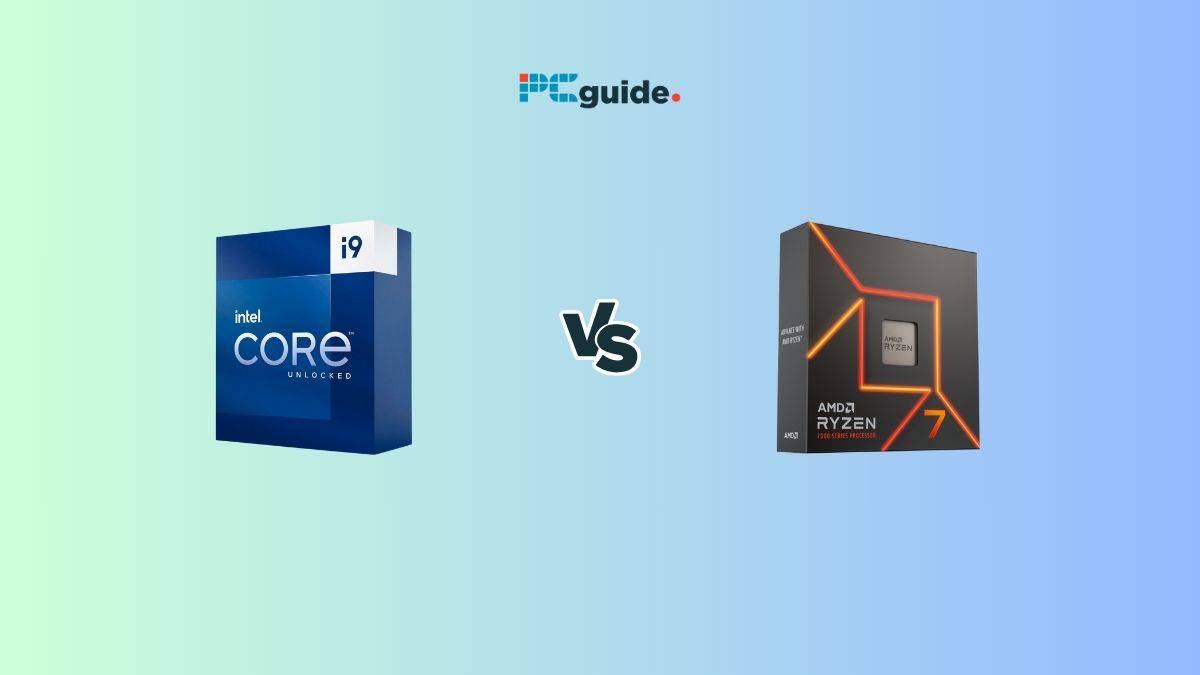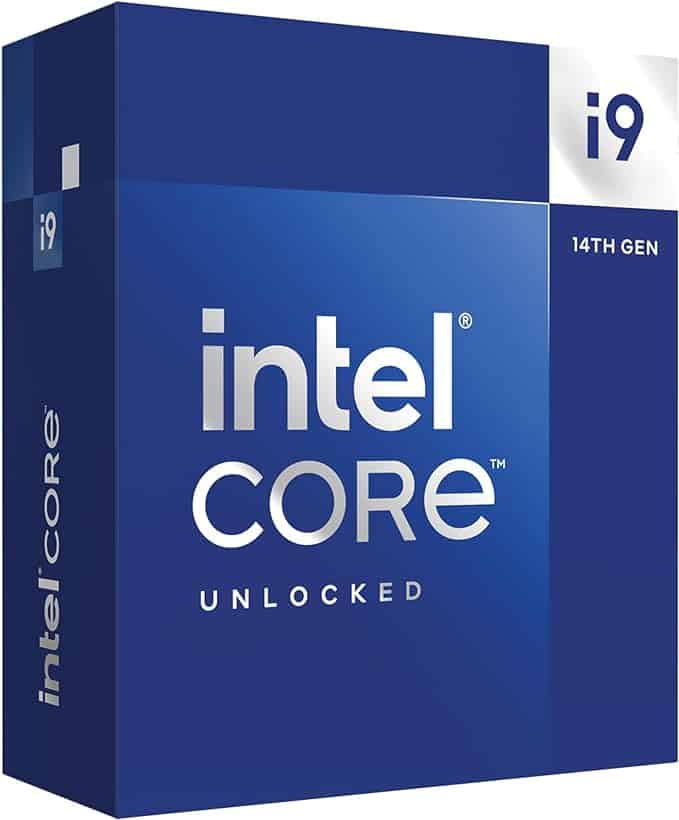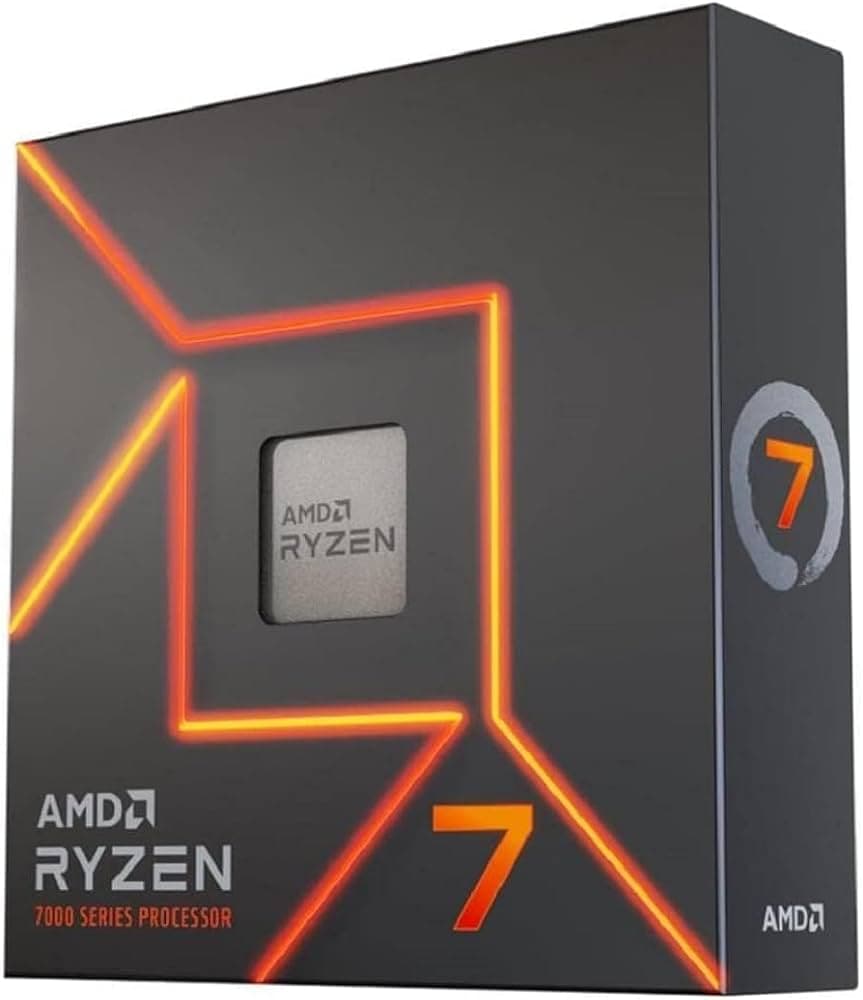Core i9 14900KS vs Ryzen 7 7700X: Intel wins?

Table of Contents
The Core i9-14900KS is likely to be the last addition to the Raptor Lake. The refresh of the 13-gen of these CPUs will be the last innovation we see that uses the LGA 1700 socket. This article will go through the expected specs and performance of the Core i9 14900KS vs. the Ryzen 7 7700X, one of the most popular AMD CPUs, will Intel win this side–by–side review?
Core i9 14900KS vs. Ryzen 7 7700X: Specs and performance
The speculated matchup between Intel’s Core i9-14900KS and AMD’s Ryzen 7 7700X is stirring excitement in the tech community, with both processors offering distinct advantages in terms of specs and performance. Here, we delve into the key features that set these two powerhouses apart.
Prime Day is finally here! Find all the biggest tech and PC deals below.
- Sapphire 11348-03-20G Pulse AMD Radeon™ RX 9070 XT Was $779 Now $739
- AMD Ryzen 7 7800X3D 8-Core, 16-Thread Desktop Processor Was $449 Now $341
- ASUS RTX™ 5060 OC Edition Graphics Card Was $379 Now $339
- LG 77-Inch Class OLED evo AI 4K C5 Series Smart TV Was $3,696 Now $2,796
- Intel® Core™ i7-14700K New Gaming Desktop Was $320.99 Now $274
- Lexar 2TB NM1090 w/HeatSink SSD PCIe Gen5x4 NVMe M.2 Was $281.97 Now $214.98
- Apple Watch Series 10 GPS + Cellular 42mm case Smartwatch Was $499.99 Now $379.99
- ASUS ROG Strix G16 (2025) 16" FHD, RTX 5060 gaming laptop Was $1,499.99 Now $1,274.99
- Apple iPad mini (A17 Pro): Apple Intelligence Was $499.99 Now $379.99
*Prices and savings subject to change. Click through to get the current prices.
Turbo clock speeds and core performance
The Core i9-14900KS is to push the boundaries of performance cores (p-cores) with a turbo boost speed of 6.2 GHz, outpacing the Ryzen 7 7700X’s 5.4 GHz by a substantial 800 MHz. This difference in higher clock speeds suggests that the 14900KS could have a considerable edge in single-core performance, which is crucial for tasks requiring the highest processing power per thread, including certain types of gaming and single-threaded applications.
Efficiency and thermal design
While Intel’s offering aims to dominate with brute power, AMD’s Ryzen 7 7700X focuses on a balanced approach, marrying high-end performance with exceptional efficiency. This efficiency is evident in its thermal design power (TDP), where the 7700X boasts a lower TDP compared to the 14900KS (105 W vs. 150 W). This impacts energy consumption and affects the choice and cost of cooling solutions needed to maintain optimal temperatures.
Integrated graphics and AI capabilities
The Ryzen 7 7700X also brings to the table impressive integrated Radeon graphics, providing more than 1.43 TFLOPS. In contrast, the Intel Core i9-14900KS offers around 0.78 TFLOPS. The higher graphical performance of the Ryzen 7 7700X could be a deciding factor for users who rely on integrated solutions for their graphical needs.
Additionally, both CPUs are expected to leverage advanced AI capabilities to enhance overall system efficiency and performance. The integration of AI is particularly beneficial in dynamically optimizing power distribution and performance across cores and applications.
Overclocking and customization
For enthusiasts interested in overclocking, the Raptor Lake Refresh architecture of the 14900KS could provide exciting opportunities to push the CPU beyond its standard specifications. The 7700X, with its efficient architecture and larger L3 cache, also presents potential for performance tuning, especially for users looking to maximize bandwidth and efficiency.
Supporting table: Core i9 14900KS vs. Ryzen 7 7700X
| Feature | Core i9-14900KS | Ryzen 7 7700X |
|---|---|---|
| P-Cores (Performance Cores) | Turbo Boost up to 6.2 GHz | N/A |
| Turbo Clock Speed | 6.2 GHz | 5.4 GHz |
| TDP (Thermal Design Power) | 150 W | 105 W |
| Integrated Graphics | Approx. 0.78 TFLOPS | Over 1.43 TFLOPS |
| AI Capabilities | Enhanced | Enhanced |
| Overclocking Potential | High | Moderate to High |
| Single-Core Performance | Exceptional | Very Good |
This comparison underscores the 14900KS’s aim for the top in raw performance and overclocking prowess, while the 7700X offers an appealing blend of efficiency, integrated graphics performance, and balanced power. Enthusiasts and general users alike will find compelling reasons to choose either, depending on their specific needs and priorities.
Verdict
The Core i9-14900KS seems poised to be the raw performance king, ideal for users requiring maximum power regardless of cost. The Ryzen 7 7700X prioritizes balance, offering great performance, a lower price, and less require for a top-tier cooler.
Core i9 14900KS vs. Ryzen 7 7700X: Price
The battle between Intel’s Core i9 14900KS and AMD’s Ryzen 7 7700X brings to the forefront not just technical prowess, but also the critical aspect of pricing and what it means for enthusiasts and average consumers alike.
Intel’s flagship offering
The Core i9-14900KS, representing Intel’s 14th gen flagship components, is poised to make a significant impact in the high-end processor market. Priced at $700, it’s Intel’s premium solution for those seeking the pinnacle of computational power. This price point reflects Intel’s targeting of enthusiasts and professionals who demand the best performance.
AMD’s competitive pricing
In contrast, the Ryzen 7 7700X offers a compelling proposition for those prioritizing value without compromising on performance. With an MSRP of $399, it challenges the premium segment by providing substantial computational capabilities at a much more accessible price point. This strategic pricing makes the Ryzen 7 7700X an attractive option for a broader audience, extending beyond enthusiasts to include users who desire high-end performance without the steep investment.
Price-to-performance ratio: A comparative analysis
Price plays a crucial role when choosing between these high-end CPUs. The Core i9-14900KS, as Intel’s latest flagship, is expected to retail around $700 or more. This reinforces its position as a premium option for enthusiasts seeking the absolute best.
On the other hand, the Ryzen 7 7700X, with its $399 MSRP, is a significantly more affordable choice. This makes it a tempting proposition for those who want top-tier performance without breaking the bank.
Value factor
While the Core i9-14900KS might offer raw performance gains (especially in multicore tasks), the Ryzen 7 7700X delivers incredible performance per dollar. AMD’s offering is likely the smarter choice for budget-conscious gamers and power users.
Don’t forget the rest
Factor in these costs when building a system around either CPU:
- Motherboard Compatibility: Ensure your motherboard supports the latest 14th gen Intel socket or the AMD AM5 socket, depending on your choice.
- Cooling: Both CPUs might need robust cooling solutions, adding to the total cost.
Price comparison table
| CPU | Launch Price | Target Market | Notes |
|---|---|---|---|
| Core i9-14900KS | $689 | Performance enthusiasts, content creators needing maximum power | Pricey, but potentially fastest in its class |
| Ryzen 7 7700X | $399 | Gamers, power users seeking great performance at a reasonable cost | Excellent value, still powerful for most tasks |
Important note: The Core i9-14900KS doesn’t have an official release date yet. Prices on both CPUs could fluctuate, especially after the Intel chip launches during Q4 of 2025.
Core i9 14900KS vs. Ryzen 7 7700X: Conclusion
The Core i9 14900KS and the Ryzen 7 7700X represent some of the best of desktop CPUs. Intel’s offering prioritizes maximum power, likely translating to superior performance in tasks that heavily utilize multiple cores. AMD’s focus is on balance – strong performance, better efficiency, and a lower price tag.
Who wins? It comes down to your needs:
- The Power Seeker: If you crave the absolute fastest CPU for content creation, demanding simulations, etc., the Core i9-14900KS may be worth the premium, especially when paired with a high-end graphics card for gaming.
- The Balanced Gamer/Creator: The Ryzen 7 7700X’s combination of performance, value, and onboard graphics make it a fantastic all-rounder. Consider this CPU if you want great gaming performance and do productivity tasks, especially if you don’t already own a dedicated GPU.
Important considerations:
- Price Fluctuations: CPU prices change over time. Keep an eye on both the i9-14900KS and 7700X prices, as potential discounts could sway your decision.
- Motherboards: Ensure your motherboard choice is compatible with your chosen CPU (Intel or AMD).
- Cooling: Don’t underestimate cooling costs, especially with the power-hungry i9-14900KS.
The best CPU is the one that aligns with your needs and budget. We’ll have to wait for official benchmarks on the i9-14900KS to get a definitive answer on its performance advantage over the Ryzen 7 7700X.


